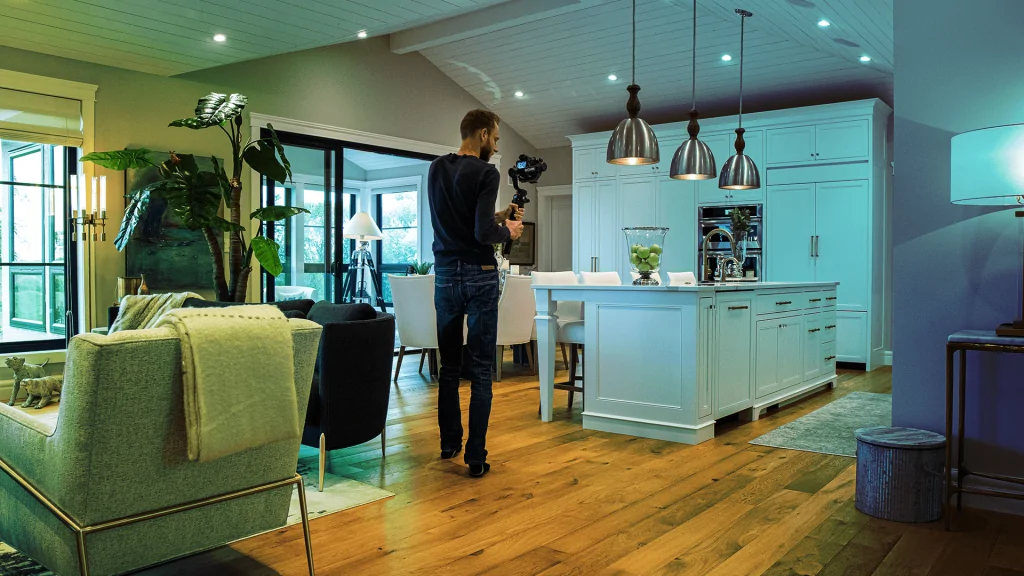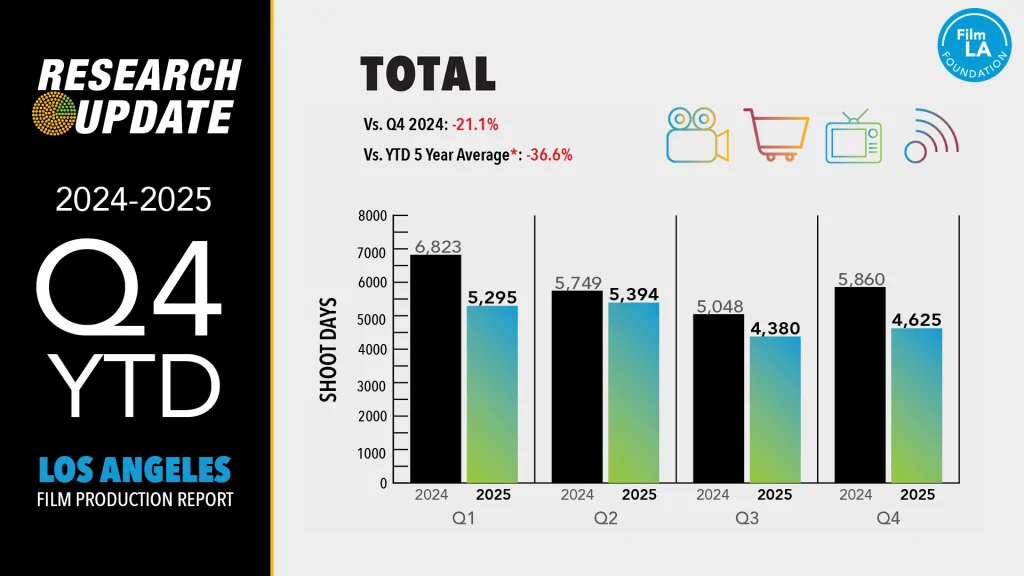This is the third article in a three-part series about hosting filming at your home or business. Through conversations with accomplished Location Professionals and film hosts, we aim to share frank, open advice about the film host experience.
A Veteran Host Shares Her Experience
In this installment we spoke with Deborah, a veteran film host who has been hosting film shoots at her San Fernando Valley home since 2014. Having a professional background reviewing legal documents and contracts, Deborah was eager to share insight and practical tips to help film hosts understand what to look for in location agreements to safeguard themselves and their properties.
Deborah’s first film hosting experience was the result of what’s referred to in the industry as a “cold scout,” where a Location Scout interested in a particular type of aesthetic or architecture approaches a home or business owner directly. After presenting identification and sharing a bit about their project, the Scout will start the relationship by asking to take scouting photographs. Once permission is given, the Scout will tour the property, take pictures, and submit the location photos back to the production team for consideration.
“I was unsure on the validity of the Location Manager that was doing the cold call, knocking on my door. He showed me his information. My husband was here, so we opened the door and then [the Location Manager] said that he was wondering if we’d be interested [in hosting filming] and if he could take a couple of pictures. It was a little nerve wracking because, you know, I wasn’t expecting anybody to come photograph my home. But he reassured me that it didn’t have to be perfect. They just were looking at the floor plan, and that was pretty much it.”
If a Cold Scout Comes Knocking…
If you’d find it unnerving to invite a perfect stranger into your home to take photos, you’re not alone. In that situation, it is important to make safety a top priority. Asking to see an ID or badge can help prove the person is who they say they are and is an important first step that should not be skipped. Having someone else present while the scout is taking place is also a good idea. For more tips, be sure and check out FilmLA’s “Cold Scout Safety for Residents and Business Owners” article.
Prospective film hosts who don’t feel comfortable allowing access to the inside of their homes can always forgo interior permissions and allow only exterior filming at their properties. Or in the case of a cold scout, property owners have been known to allow photos to be taken of the exterior and arrange for the Location Scout to come back later to take photos of the interior. This can keep the location option open and give the host time for consideration and background research.
“I had seen filming in the area and I had a friend that did it, so it wasn’t like it was completely taboo. I just never had any personal experience with it,” Deborah explained. “I called a friend of mine that was familiar with filming and had hosted filming before. She gave me some parameters.”
Deborah went on to say, “They presented a contract. And then I relied on my real estate background to go through the contract realizing that it… was very one sided and I had to change the whole thing. So that was a little bit nerve wracking.”
Balancing the Agreement: Protecting Both Parties
Once a decision is made to go forward with filming at a property, the next step involves contracts (aka “Location Agreements”) and insurance. Obtaining a legal filming permit is also important, although that is the responsibility of the production company, not the homeowner. FilmLA advises all film hosts to require and verify that a legal City or County film permit has been obtained to protect themselves in case they need to file an insurance claim. Most insurance policies will not cover damages if film permits are not obtained.
While cautioning that she cannot give legal advice, Deborah mentioned the need for insurance, highlighting:
“The production company does have their own insurance, but the caveat is, [for that to protect you] they would have to name the homeowner as additional insured loss payee with third party property damage. They would also have to give an additional insurance endorsement, and you would have to read that endorsement to see the written language of the policy.”
Deborah went on to offer some tips on reading contracts, particularly when it comes to force majeure. Force majeure is a provision in a contract that frees both parties from obligation if an extraordinary event (like an actor falling sick) directly prevents one or both parties from proceeding as agreed.
“You know, first of all, I don’t do force majeure on any of my contracts,” Deborah explains. “And I think if somebody has a little bit of a background in law or real estate, they’ll know that that’s really putting your neck on a chopping block.”
“Also, I don’t accept commercial wear and tear because commercial wear and tear is different than residential [wear and tear]. A lot of homeowners don’t know that when they do filming, and they get that permit, they’re taking a residential zone and turning it into a commercial zone for the duration of the film project. So ‘commercial wear and tear’ would be, you know, that you’re accepting cracks in your floor because you’re bringing in a ‘Fisher Dolly’ (a type of specialized film equipment).”
Deborah cautions potential film hosts that some contracts may favor the film company and that it is important for homeowners to seek counsel before signing.
“I’ve actually looked at friends’ contracts as a courtesy and advised them accordingly when I thought something was… very one sided.”
She stressed that the final agreement should meet the needs of both parties.
Make Your Hosting Experience a Success
Hosting filming in your home or business can be a rewarding experience, bringing both excitement and financial benefit when done thoughtfully. By taking steps to protect yourself and your property, and ensuring that filming is conducted legally and responsibly, you set the stage for a smooth and positive partnership with production teams and your neighbors.
If you’re considering becoming a film host, we encourage you to reach out to our Community Outreach team: outreach@filmla.com. They are here to answer your questions, provide guidance, and help you feel confident and prepared every step of the way.
See the previous articles from this series:







